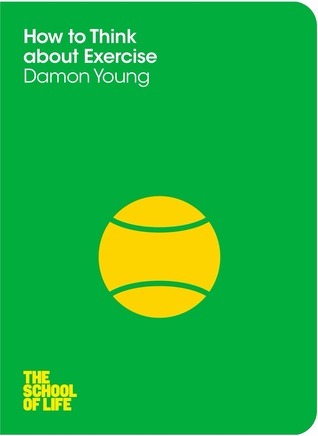What do you think?
Rate this book


160 pages, Paperback
First published January 1, 2014
When we are committed to a more balanced life — a life without dualism — we can enjoy a kind of human alchemy: we put in raw muscular strain and agility, and get back some psychological gold. And vice versa: the price of a stronger arm or heart is a mind that can attend to racquet and ball, rock or road, with greater accuracy. Either way, intelligent exercise is always a to-and-fro. We are not defined by our mind or our body, but by their intimate congress.
The idea is to see exercise as a remedy for existential incompleteness, instead of just a way to postpone death or purchase sexiness with sweat.